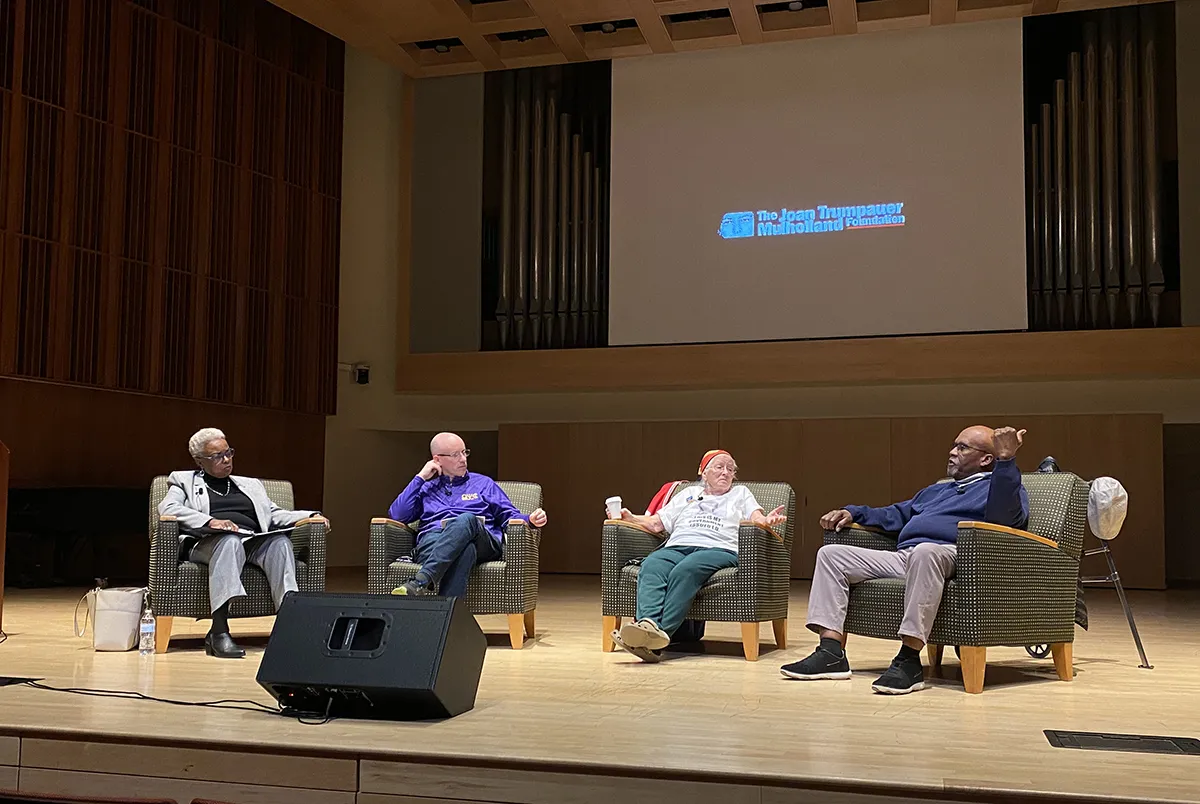On September 28, during Ithaca College’s Day of Learning Series, the college hosted a trio of speakers who spoke to students about how they can have an impact when facing injustice.
The topic of the discussion was “Students as Advocates and Change Agents,” and the speakers were: Luvaghn Brown, a civil rights activist who was a member of the Student Nonviolent Coordinating Committee (SNCC), a Civil Rights organization founded in 1960; Civil Rights icon Joan Triphammer Mulholland; and her son, Emmy-award winning filmmaker Loki Mulholland ’93.
Hosted by President La Jerne Terry Cornish, the Day of Learning was held to bring issues of diversity, equity, inclusion, and belonging into conversation on campus and within the community.
“The work of Luvaghn, Loki, and Joan is as relevant today as it was in the 1960s, and we are fortunate that these advocates have joined us tonight to share their insights on we can activate our capacity to be agents of change in own community,” Cornish said. “We felt that we had struck a blow, and we were committed to doing something else,” he told the audience. “And through all of that. I was not afraid. What I was doing was right.”
Each of the panelists shared their history with the Civil Rights movement. Brown, a black man who was born and raised in Mississippi, got involved in the movement more gradually, saying that the rhetoric of groups like the Freedom Riders “didn’t resonate with me at first because they were talking about nonviolence, and nobody in the South practiced nonviolence. We killed each other.”
